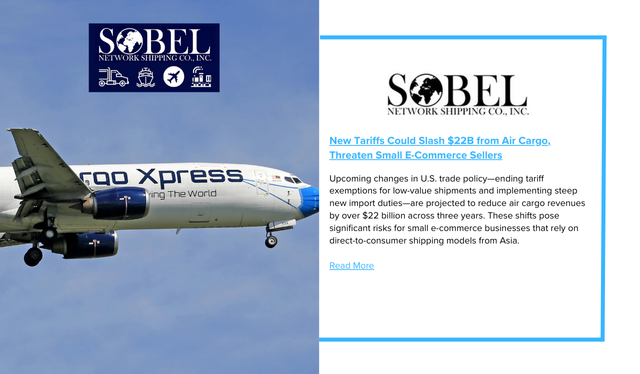Upcoming changes in U.S. trade policy—ending tariff exemptions for low-value shipments and implementing steep new import duties—are projected to reduce air cargo revenues by over $22 billion across three years. These shifts pose significant risks for small e-commerce businesses that rely on direct-to-consumer shipping models from Asia.
A major driver of the anticipated revenue decline is the end of the de minimis exemption, which currently allows duty-free import of goods valued under $800. Starting May 2, retailers will need to submit formal customs entries for every low-value shipment from China and Hong Kong. This change coincides with the imposition of 145% tariffs on select imports, drastically raising the cost of fulfillment for cross-border e-commerce.
Air cargo carriers heavily involved in e-commerce trade between China and the U.S. are expected to face lower demand, excess capacity, and downward pressure on freight rates. E-commerce shipments account for an estimated 50–60% of China-U.S. airfreight volumes. As demand drops, carriers may reduce flight schedules, accelerate aircraft retirement, or redeploy capacity to other regions.
The ripple effects could be especially damaging to small sellers that lack infrastructure for traditional bulk imports and warehousing in the U.S. Without the ability to absorb higher duties or shift to alternative models, many of these businesses may struggle to remain viable. Logistics providers supporting direct-to-consumer fulfillment may also be affected by reduced parcel volumes and rising brokerage and processing fees.
Adding friction at checkout due to new customs requirements could further dampen consumer demand. Industry experts warn that requesting personal data to clear shipments may deter U.S. shoppers, amplifying the impact on cross-border parcel flows and shipping profitability.
If similar de minimis restrictions are adopted by other regions—such as the European Union—the disruption could extend well beyond the U.S.-China trade lane. Some freight analysts suggest that the only short-term relief may come in the form of reduced air freight rates, projected to drop as much as 30–40%.
With costs rising, customer experience degrading, and fulfillment models under pressure, the future of direct-to-consumer shipping from Asia is being rapidly redefined.


